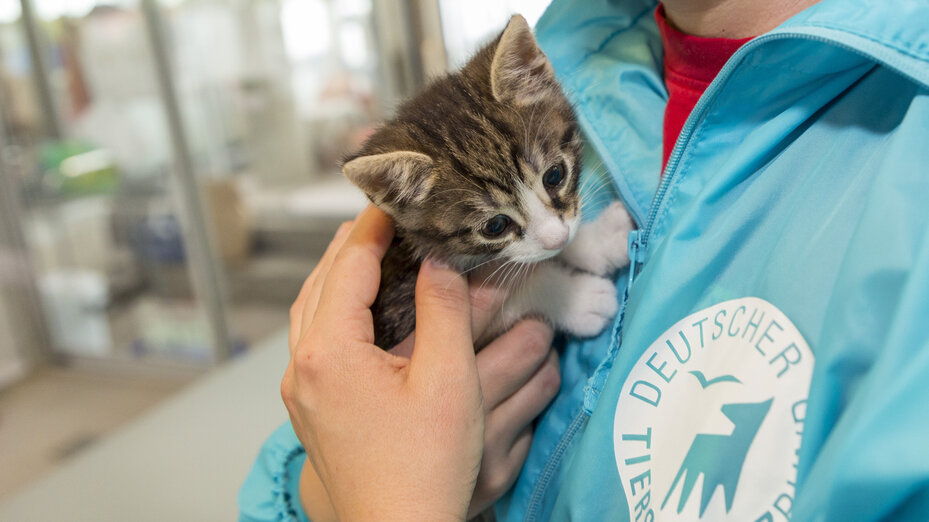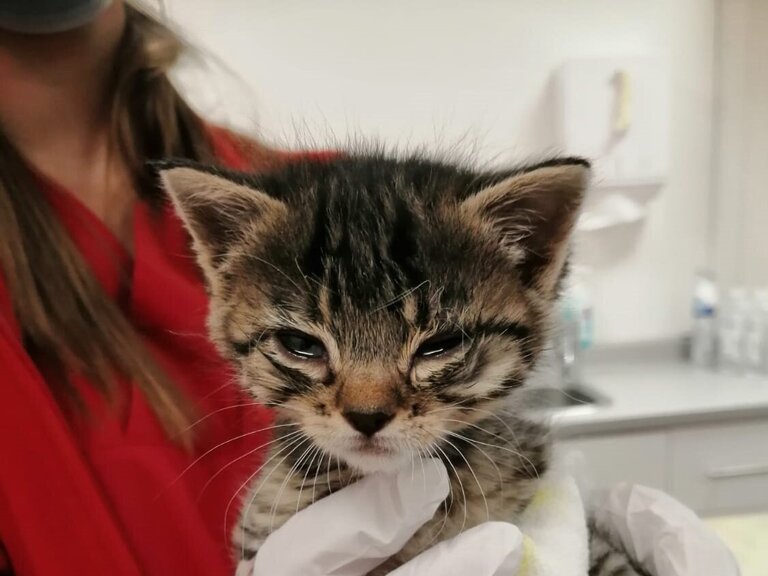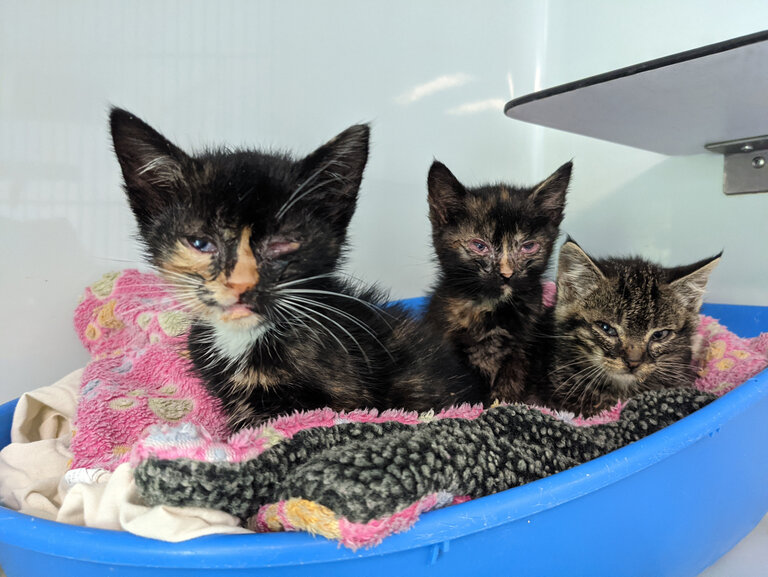According to a trend survey* conducted by the German Animal Welfare Federation, 69% of animal shelters report that their capacity utilization is at least very high. 49 percent of them are full or even overcrowded. Only 18% still have the capacity to take in animals. The flood of surrendered and abandoned animals is enormous as a result of the corona-related pet boom with ill-considered pet purchases followed by general cost increases and an adjustment to the veterinary fee schedule. The lack of mandatory castration for outdoor cats throughout Germany is also contributing to an overpopulation of unwanted offspring as well as found cats and orphaned kittens from street cats. In many places, this has resulted in a ban on rehoming.
“The number of people wanting to get rid of their animals seems to be higher than ever before. The animal shelters are overloaded and can no longer take care of every animal in need,” warns Thomas Schröder, President of the German Animal Welfare Federation, who accuses those politically responsible of failing: ”Those who bleed charitable animal welfare to death, do not stop the online trade in animals and allow anyone to spontaneously buy an animal are partly to blame for the fact that the animal shelters are at their limit.” Schröder also sharply criticizes the fact that the traffic light coalition has not allocated any funds in the federal budget for the consumer foundation for animal shelters promised in the coalition agreement.
REPEATED ADMISSION STOPS
82% of the animal shelters surveyed by the German Animal Welfare Association report that the number of animals in their care has increased since 2022, i.e. when the coronavirus pandemic flattened out and as a result of the pet boom. However, the number of animals that an animal shelter can accommodate in an animal-friendly manner is limited. Because - according to 74% of the animal shelters surveyed - an increasing number of sick animals are ending up in shelters that find it difficult to find a new home, many places remain occupied for long periods of time. The same applies to dogs that have developed problematic behavior - often due to a lack of expertise on the part of previous owners and their lack of motivation to work with their animals. In many animal shelters, admission freezes have to be imposed time and again.
Anyone who wants to surrender their animal must therefore currently expect to end up on a waiting list or have to find another solution for their animal. “As an owner, you are responsible for your animal and animal shelters are not obliged to take in unwanted animals - many people don't realize that,” says Schröder. Nevertheless, every animal rights activist's heart bleeds when there is simply a lack of capacity to take an animal into safe care. People want to help, but in many places they can no longer do so, says the Animal Welfare Federation President.
EXCESSIVE DEMANDS AFTER AN ILL-CONSIDERED PURCHASE ARE OFTEN THE REASON FOR RELINQUISHMENT
According to the survey, the main reasons for relinquishing animals are excessive demands, lack of time, dog biting incidents and increased veterinary costs. For some owners, the summer vacation can also be the straw that breaks the camel's back, causing them to part with their pet for good. The German Animal Welfare Association therefore urgently advises owners to inform themselves well before acquiring an animal so that they can meet their responsibilities for as long as their pet lives.
*Trend survey: in cooperation with Fressnapf among animal shelters affiliated with the German Animal Welfare Association; May 2024; sample: n = 218








